Investor vs Trader: Know the Difference & Be Your Own Financial Protector
By CapitalKeeper | Weekly Education | Indian Stock Market | Market Moves That Matter
In today’s fast-paced world of finance, two dominant personalities shape the markets — the Investor and the Trader. While both aim to make money from the financial markets, their strategies, mindset, timelines, and risk appetites are entirely different.
Understanding this difference is not just important for stock market participation, but also vital in shaping your overall financial behavior.
Let’s decode the distinction and learn how you can apply their principles in your daily life to become your own financial protector.
📊 Investor vs Trader: Basic Definition
| Aspect | Investor 🏗️ | Trader ⚡ |
|---|---|---|
| Time Horizon | Long-term (years or decades) | Short-term (minutes to weeks) |
| Objective | Wealth creation, compounding | Quick profits, market momentum |
| Risk Level | Moderate to low (depends on asset) | High (due to volatility & leverage) |
| Analysis | Fundamental analysis | Technical analysis |
| Frequency | Low – buy & hold | High – frequent buying/selling |
| Instruments | Stocks, Mutual Funds, Bonds, ETFs | Stocks, Options, Futures, Forex |
💼 Investor Mindset: Planting a Tree
An investor is like a farmer who plants seeds (money) and waits patiently, watering and nurturing the plant (investments) to eventually enjoy the fruit (returns).
Characteristics:
- Believes in power of compounding
- Chooses quality stocks/funds
- Focuses on business fundamentals
- Less emotional, more goal-oriented
- Ignores short-term noise in the market
Common Investment Avenues:
- SIPs (Systematic Investment Plans)
- Nifty 50 index funds
- Public Provident Fund (PPF)
- Government bonds
- Blue-chip stocks (e.g., TCS, Infosys)
⚔️ Trader Mindset: Playing the Game
A trader is more like a chess player or athlete — agile, alert, and strategic. Their focus is short-term price movements, and they rely heavily on technical indicators like RSI, MACD, candlestick patterns, and breakout setups.
Characteristics:
- Reacts to news, charts, and volume
- Cuts losses quickly
- Needs discipline and emotional control
- Uses stop-losses and position sizing
- Often trades with leverage
Common Trading Styles:
- Scalping: Seconds to minutes
- Day Trading: Same-day entry/exit
- Swing Trading: Holding for a few days/weeks
- Positional Trading: Riding trends over weeks/months
🧠 How to Implement These Concepts in Your Financial Life
Even if you’re not active in the stock market, you behave like an investor or trader in various aspects of daily life:
| Real Life Example | Investor Behavior | Trader Behavior |
|---|---|---|
| Buying a home | Long-term asset planning | Flipping property for short-term gain |
| Job/career | Focused on skill building and compounding returns over time | Switching roles often for short-term salary jump |
| Shopping | Budgeting and buying for utility and longevity | Impulse buys and trend chasing |
| Relationships | Building long-term trust and growth | Emotional high and quick exits |
🛡️ Be a Financial Protector: Blend the Best of Both Worlds
To safeguard your financial future, you need to know when to invest and when to trade — both in markets and in life.
✅ What to Learn from Investors:
- Patience leads to compounding
- Long-term planning beats quick thrills
- Diversification protects your capital
✅ What to Learn from Traders:
- Cut your losses quickly (don’t throw good money after bad)
- Be alert to opportunities
- Timing and discipline matter
📝 Quick Checklist to Be a Financial Protector:
| Action Plan | Investor View | Trader View |
|---|---|---|
| Monthly Savings | SIP in mutual funds | Emergency savings fund |
| Large Purchase | Save & plan months ahead | Time it during discounts/deals |
| Stock Market | Long-term index investing | Swing trading with strict stop-loss |
| Career | Continuous upskilling | Quick adaptation & negotiation |
| Risk Management | Insurance, Will, Diversification | Stop-loss, risk-reward, exit plan |
🔚 Final Thoughts
There’s no one-size-fits-all approach. Some people are natural investors. Some are natural traders. The smart ones? They master both behaviors. Knowing when to hold on and when to let go — that’s the true art of financial protection.
Whether you choose to be an investor, a trader, or a hybrid, always remember:
“It’s not about timing the market, but time in the market – with the right mindset.”
📌 For more real-time updates, trade setups, and investment insights — follow us on [Telegram] and subscribe to our newsletter!

📌 Disclaimer
The content provided on CapitalKeeper.in is for informational and educational purposes only and does not constitute investment, trading, or financial advice. While we strive to present accurate and up-to-date market data and analysis, we make no warranties or representations regarding the completeness, reliability, or accuracy of the information.
Stock market investments are subject to market risks, and readers/investors are advised to conduct their own due diligence or consult a SEBI-registered financial advisor before making any investment decisions. CapitalKeeper and its authors are not liable for any loss or damage, direct or indirect, arising from the use of this information.
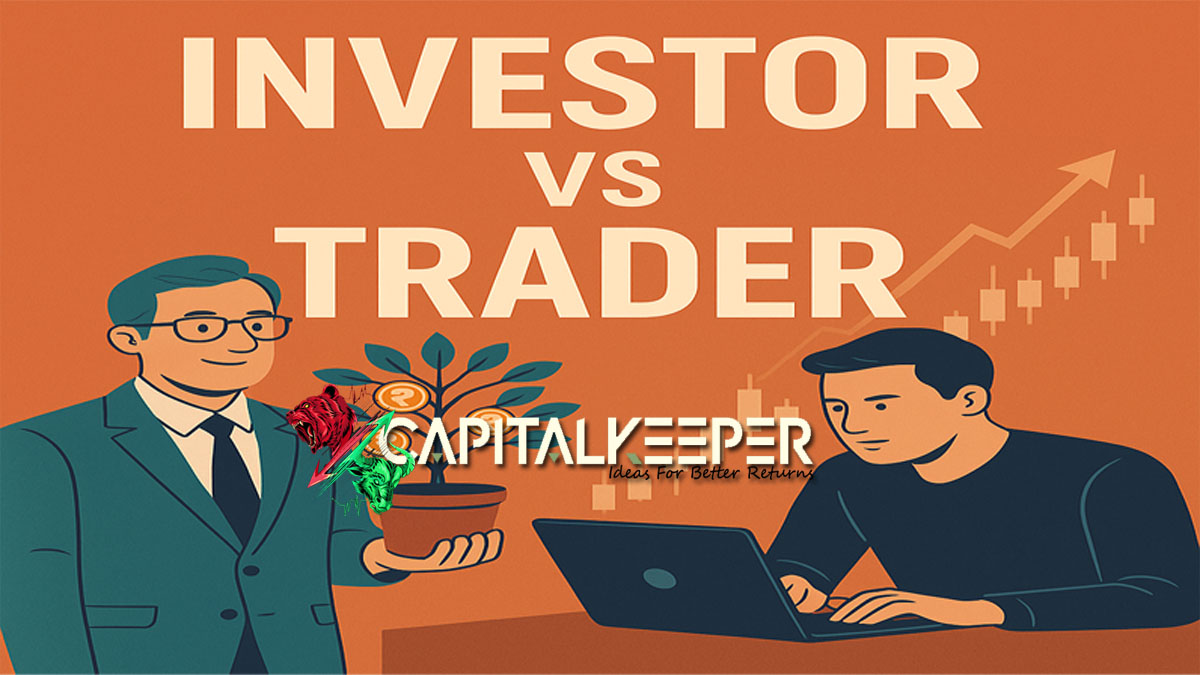


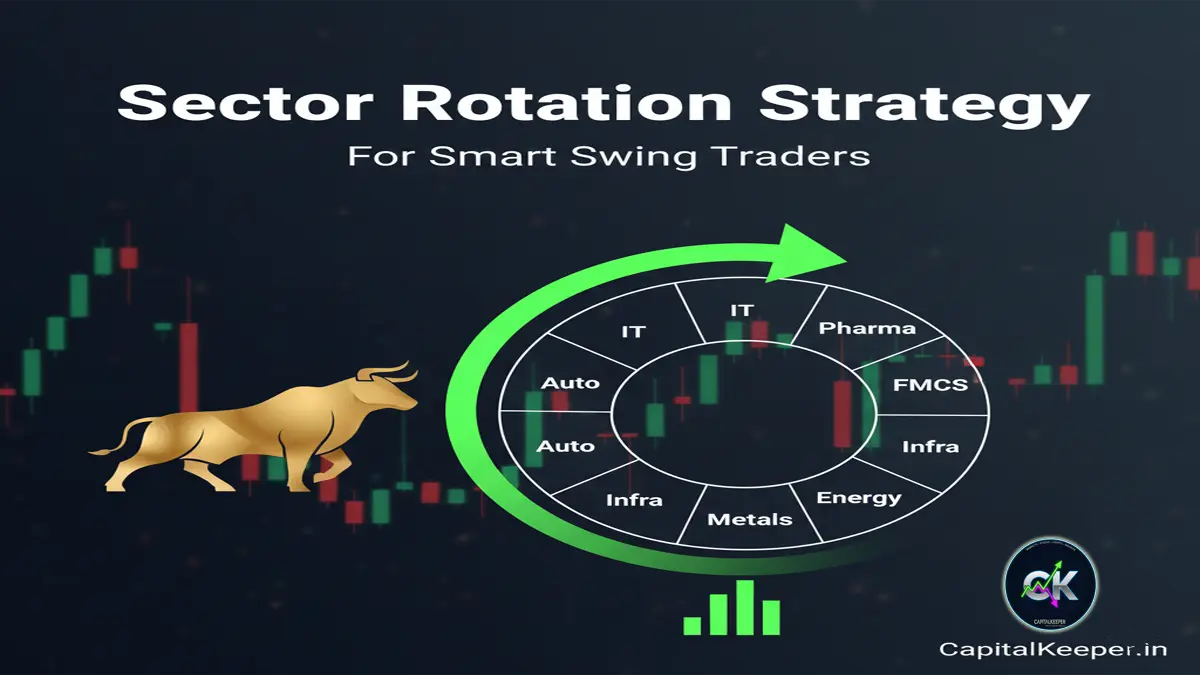




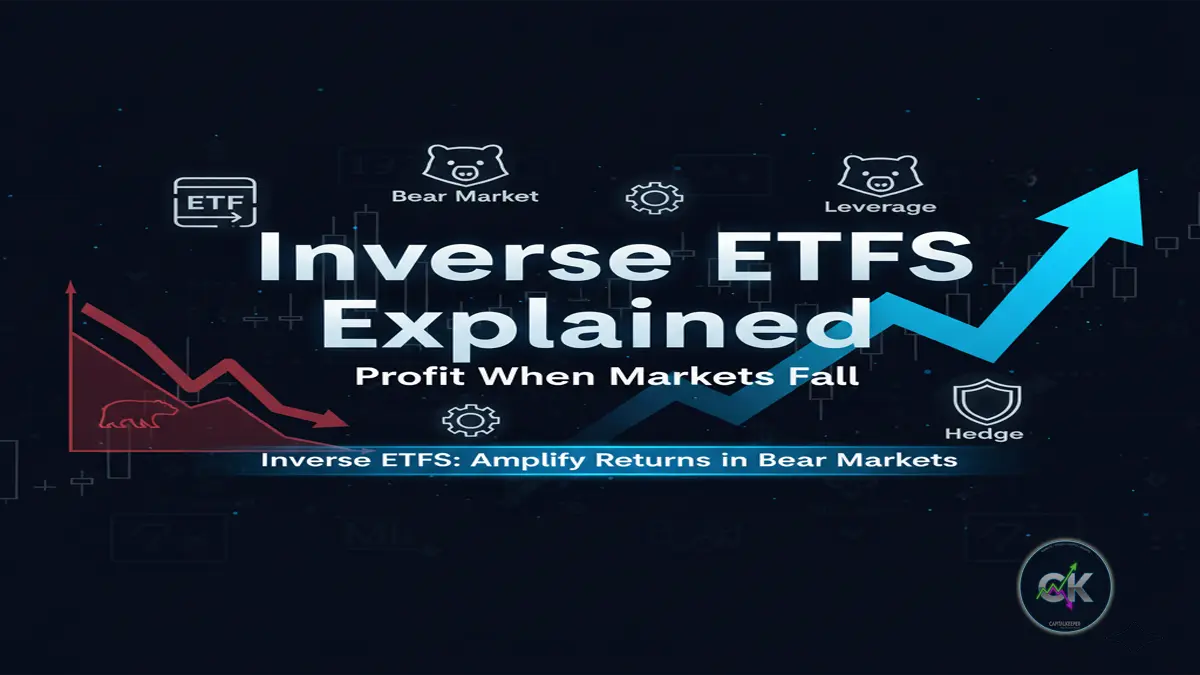



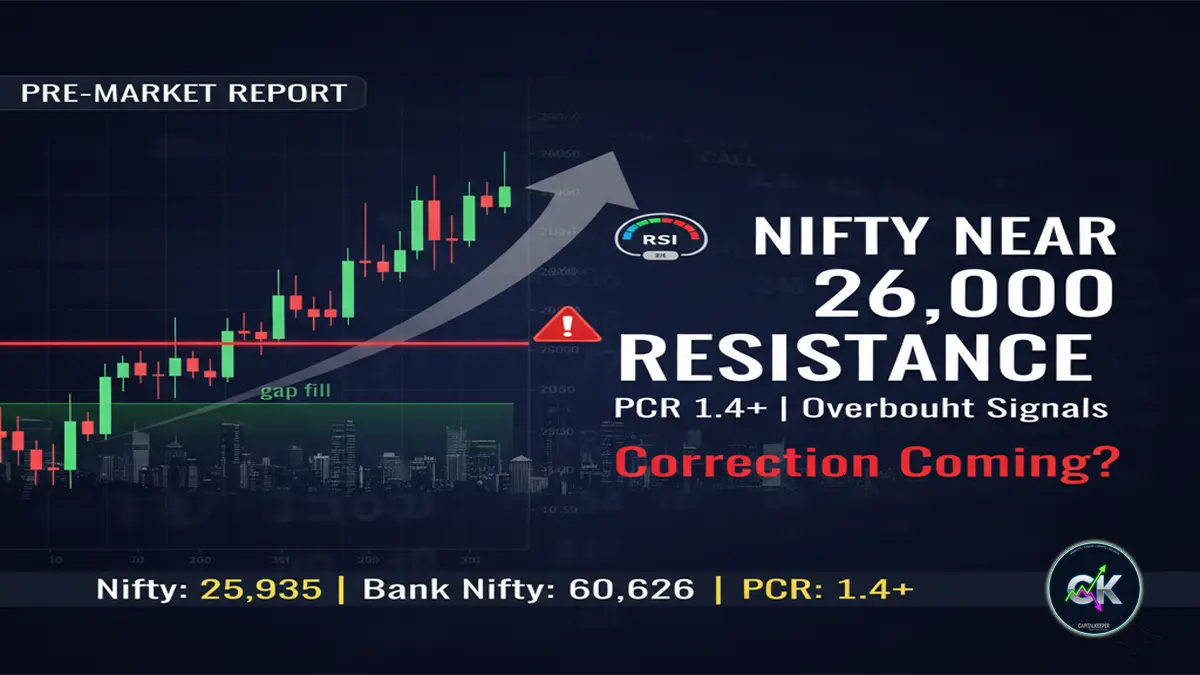
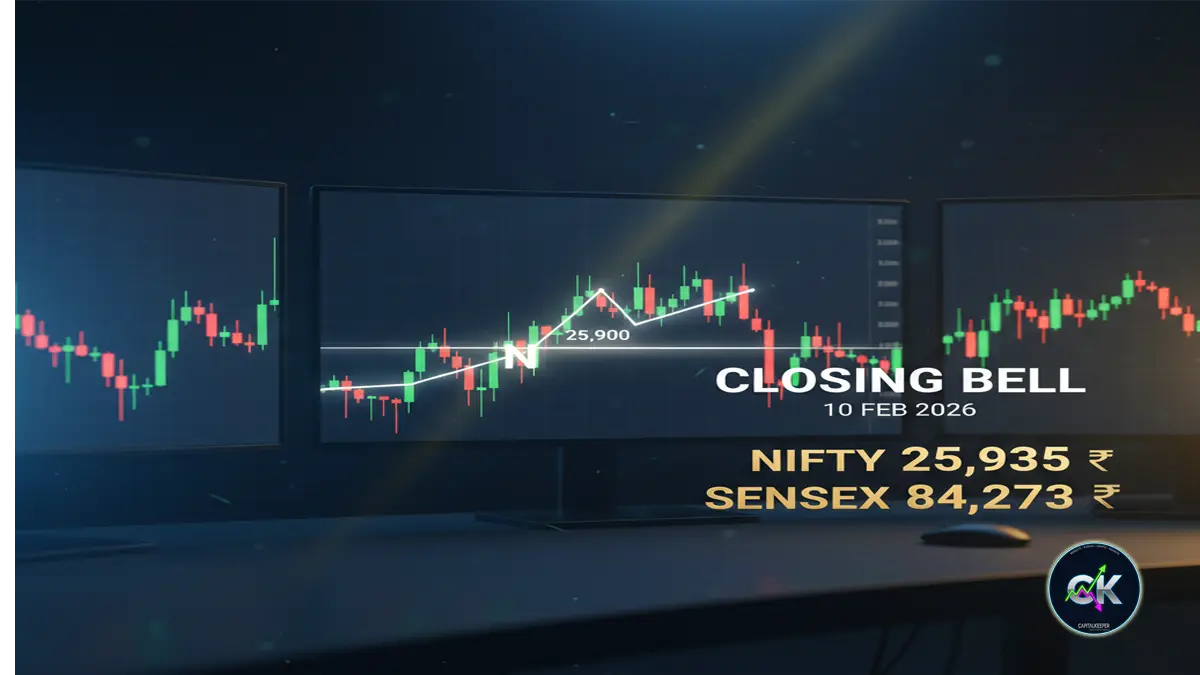
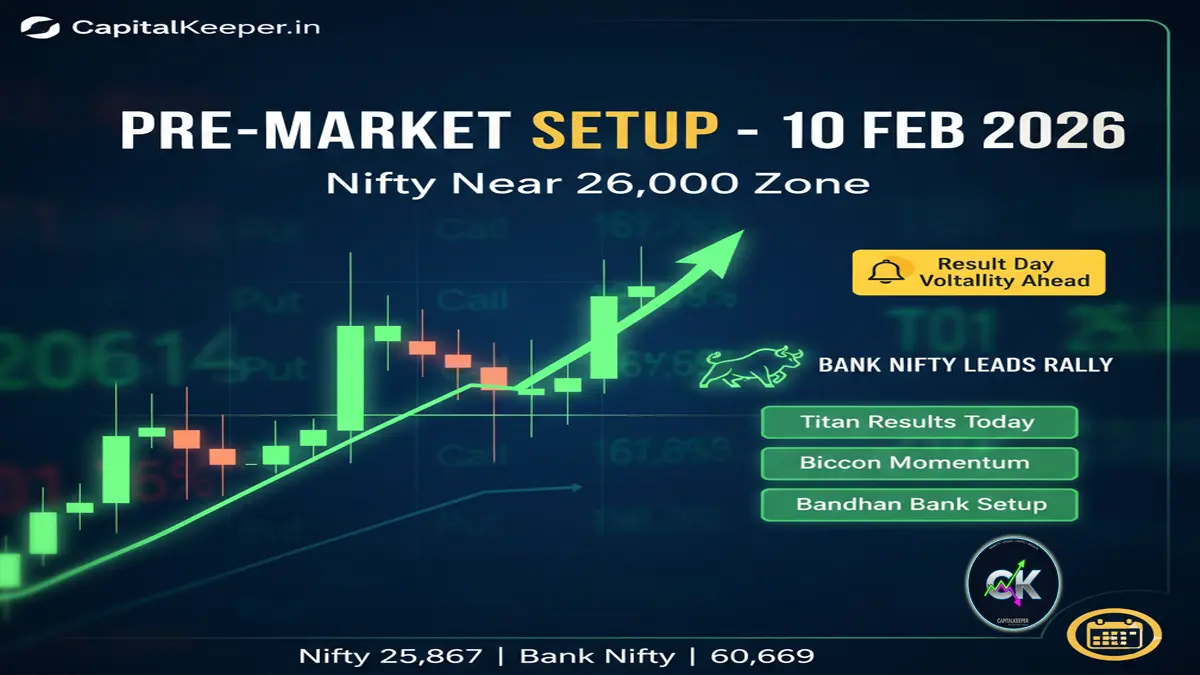

Leave a Reply